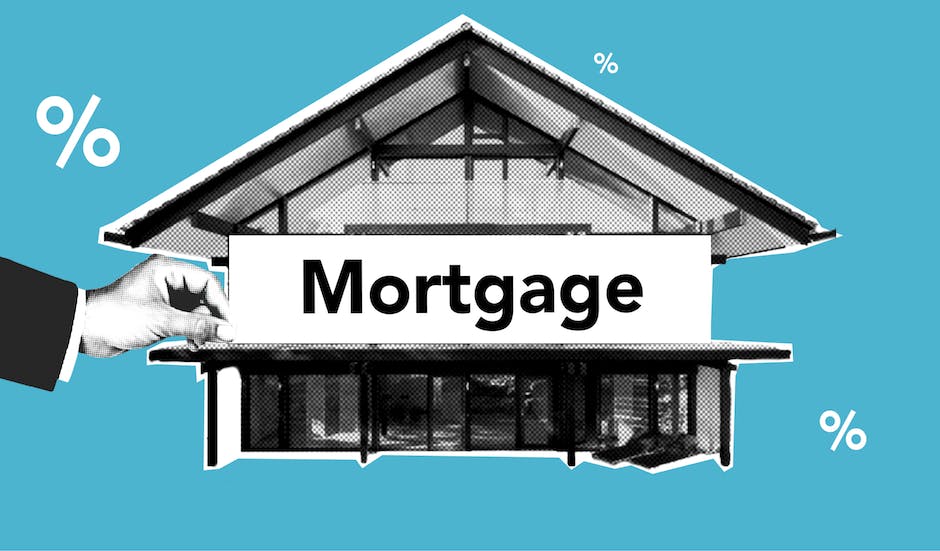In the midst of a growing economy and a dynamic business landscape, Germany offers a world of opportunities for entrepreneurs willing to engage with its market. However, establishing and developing a business in any foreign country is not without its challenges, and Germany is no exception.
Key among these challenges is securing business financing. For foreign entrepreneurs, understanding the German financial landscape and how to navigate it could be the difference between the success and failure of their business ventures.
This analysis takes a deep dive into the ecosystem of business loans in Germany for foreigners, elucidating all crucial aspects from requirements and processes to potential challenges and legal frameworks.
Table of Contents
ToggleRequirements for Obtaining Business Loans
Eligibility Criteria for Business Loans in Germany as a Foreigner
Foreign entrepreneurs who plan to start a business in Germany are eligible to apply for various types of business loans. However, lending institutions have several requirements that such applicants must fulfill.
Firstly, foreign entrepreneurs must have a valid residence permit that allows them to operate a business in Germany. This requirement ensures that the foreigner has legal status in the country and can engage in commercial activities.
Secondly, the applicant should have a good Schufa, or credit score. This rating represents the borrower’s creditworthiness and financial institutions heavily weigh this factor when considering whether to grant a loan.
Thirdly, the entrepreneur must be actively involved in the management of the business seeking the loan. Financial institutions often require that loan applicants demonstrate a strong personal commitment to the business.
Lastly, foreign entrepreneurs are expected to have a solid business plan that convincingly shows how the loan will be employed profitably and how the business would generate enough profit to repay the loan.
Documents Required for Business Loan Application
When applying for a business loan in Germany as a foreigner, certain documents must be submitted to the financial institution. These documents are necessary to prove the information provided during the application process.
The required documents may include, but are not limited to:
- Valid Passport: This is to verify the identity of the applicant.
- Residence Permit: A document that proves that the foreigner is a resident in Germany and is legally allowed to operate a business.
- Business Plan: The business plan outlines the business model and forecasts the business’s financial future. It essentially details how the business loan would be used and how the business intends to repay the loans.
- Financial Statements: If the business is already in operation, potential lenders may require previous financial statements. These could include income statements, balance sheets, or cash flow statements.
- Schufa Report: It’s a type of credit report used to assess the creditworthiness of the applicant.
Evaluating the Creditworthiness of International Entrepreneurs in Germany
Various methods are employed by German lending institutions to evaluate the creditworthiness of international entrepreneurs. One significant factor is the individual’s Schufa score or their credit rating. This score reflects their credit history, taking into account any past defaults to illustrate potential risks associated with lending to the entrepreneur.
Additionally, the business plan plays a vital role. It should explicitly state how profitable the business is expected to be and demonstrate its capability to pay back the loan.
If the business is already operational, the firm’s past and present financial performance is examined to determine its likelihood of repaying the loan.
The lending institutions might also consider the personal investment the entrepreneur has made in the business. An extensive personal investment often suggests confidence in the projected business success and provides additional reassurance that the loan will be repaid in due course.
In conclusion, the final judgment of creditworthiness is a blend of these factors, coupled with the robustness of the business model and its potential in the market.

The Process of Applying for Business Loans
Recognizing the Significance of Business Loans in Germany
As the largest economy in Europe and the fourth most substantial globally, Germany offers a conducive business environment. Thanks to its strategic location and robust infrastructure, many international entrepreneurs choose Germany as their business hub. Establishing or expanding businesses in such an economic hotspot often calls for additional financing, cementing the importance of business loans in these ventures.
Eligibility for Foreigners to apply for Business Loans in Germany
In Germany, foreigners need to meet certain criteria to be eligible for business loans. If the individual is from an EU member state, the European Economic Area, or Switzerland, they can avail loans just like German citizens. Others are required to have a residence permit or a settlement permit. For both scenarios, businesses must be registered in Germany, demonstrating an intimate connection to the country’s economic interest.
Online and Offline Application Process
There are two ways to apply for a business loan in Germany: online and offline. The online application is more convenient and faster, but the offline method offers a higher level of consultation. For the online application, you need to fill out an application form on the lender’s website, upload the necessary documents, and submit the form. Offline application requires you to visit the bank or lending institution personally, fill out a physical application form, and submit the required documents.
Required Information and Documentation
- Business Plan: Lenders need to see a detailed business plan to assess its viability.
- Registration Documents: As proof that your business is registered in Germany.
- Financial Statements: Provides an overview of the company’s financial status.
- Tax Returns: Shows the profitability and earning power of the company.
- Personal Identity Proof: A Passport or ID card provides personal identification of the applicant.
- Residence Permit or Settlement Permit, if applicable.
Tips for a Successful Application
- Make sure your business plan is detailed, realistic, and shows a clear path to profitability.
- Keep your financial statements and tax returns accurate and up-to-date.
- If you are not fluent in German, consider hiring a translator or a consultant to navigate the complex world of German banking.
- Understand the specific lending requirements of various institutions to find the one that best fits your needs.
Main Points
Securing a business loan in Germany as an international applicant may initially seem challenging, however with adequate information and appropriate planning, it’s quite feasible to obtain the necessary funding to successfully actualize your entrepreneurial ambitions.

Types of Business Loans Available
Diverse Range of Business Loans Offered in Germany to Foreign Entities
Germany presents enticing prospects for overseas businesses, providing an array of business lending options that cater to non-native proprietors. These include both collateralized and non-collateralized loans, credit lines, and a host of distinct loan varieties. Here’s an extensive review of the diverse business borrowing opportunities at your disposal.
Secured and Unsecured Loans
German banks and other financial institutions offer both secured and unsecured loans to foreign business owners. Secured loans, also known as collateral loans, require borrowers to pledge assets equivalent to the loan amount as a security measure. This type of loan is common in large-scale businesses or businesses with substantial physical assets.
On the other hand, unsecured loans do not require collateral; instead, they are based on the creditworthiness of the borrower. Unsecured loans are more popular among small and medium-sized enterprises (SMEs) due to their easy access and flexibility. However, interest rates for these loans are generally higher due to the increased risk posed by the lack of collateral.
Line of Credit
A line of credit serves as a flexible loan facility provided by German banks that allows businesses to borrow money when needed, up to a pre-set limit. Interest is only charged on the amount borrowed and not the entire credit limit. This kind of loan is most popular among businesses that need working capital or face seasonal fluctuations in cash flow. The flexibility of the line of credit makes it an attractive option for foreign business owners in Germany.
Invoice Financing
Another type of business loan available to foreigners in Germany is invoice financing. This requires businesses to use their unpaid invoices as collateral in exchange for instant cash. Businesses can usually borrow up to a specific percentage of the value of the unpaid invoices. Invoice financing is most suitable for businesses experiencing delayed invoice payments and needing to maintain cash flow.
Peer-To-Peer (P2P) Lending
With the growth of fintech in Germany, P2P lending has emerged as a popular alternative to traditional loan options. Foreign businesses can borrow money directly from individual lenders through an online platform, bypassing traditional banks and financial institutions. P2P lending platforms in Germany follow stringent regulations to ensure the security of both borrowers and lenders.
Equipment Financing
For businesses in sectors where expensive equipment is necessary, German banks offer equipment financing. This loan option allows businesses to purchase or lease equipment needed for their operations without having to afford the upfront costs, freeing up their cash reserves for other purposes.
Loan Eligibility Criteria
In order to secure business loans in Germany, foreign firms must have all their required paperwork in check, such as a solid business proposal, realistic financial projections, and a reputable credit score. Alongside, these entities should also adhere to Germany’s established laws and regulations pertaining to foreign business ownership.

Key Challenges for Foreigners Accessing Business Loans
Challenges for Foreign Businesses securing loans in Germany
For foreigners eyeing to establish a business and secure a loan in Germany, there can be several complexities that are generally not experienced by local businesses. These might encompass language and cultural differences in addition to the complex German banking procedures.
1. Language Barrier
While English is a widely spoken language in the business world, dealing with financial institutions in Germany could still require proficiency in the German language. Most banks conduct their affairs primarily in German, and some websites or online banking platforms may not offer comprehensive instructions or guidelines in English. Therefore, a solid understanding of the German language or the help of a capable translator can indeed prove beneficial when navigating through the loan application process.
2. Cultural Differences
Cultural intricacies may also pose challenges for foreigners seeking loans in Germany. Germans are known for their directness, compliance, and punctuality, which can be reflected in their bank procedures. Often, loan seekers must present a detailed and thorough business plan to obtain a loan – a single careless error could lead to outright disqualification.
3. Complex Banking Procedures
Banking procedures in Germany can be intricate and comprehensive, especially for foreigners who may not be familiar with local regulations. Legal procedures in Germany require certifications and licenses for different business activities, and compliance with these requirements is mandatory for loan approval.
Additionally, credit scoring and collateral requirements might present a challenge. German banks typically require collateral either in the form of real estate, liquid assets, or business assets. For new immigrants or foreigners without significant assets in the country, this can be a major hurdle.
4. Tax Complications
The tax system in Germany is comprehensive and might be complicated for foreigners to understand. Germany has double-taxation agreements with several countries, but understanding how these agreements apply personally can be challenging. It can also substantially influence your ability to repay your loan and impact your overall financial plan.
5. Legal Status Issues
A foreigner’s legal status in Germany can significantly impact their ability to secure a business loan. Those with a temporary visa, for example, may find it more challenging to get a loan compared to those with permanent residency or citizenship status.
Business loans are accessible to foreigners in Germany, albeit with some intricacies due to their non-resident status. Extra guidance in navigating these complexities might be beneficial – either through an expert financial advisor or effective online platforms dedicated to helping foreigners in this field. Taking the right steps to understand and address these challenges is paramount to launching a thriving business in Germany.

Legal and Regulatory Framework
Understanding the German Legal Framework for Business Loans
Business loans in Germany, either for locals or foreigners, are heavily guided by the German Civil Code (BGB) and the German Banking Act (KWG). These regulations encompass all loan proceedings within the country. Therefore, foreign nationals wishing to procure a business loan must ensure that they accurately adhere to these laws.
Foreigners and Business Loans
For foreigners to receive a business loan in Germany, they should have a legal residence permit. Additionally, if a foreigner serves as a company’s managing director, the foreigner will need to either have EU citizenship or a German residence permit that allows self-employment.
In most cases, banks will require foreigners seeking a business loan to have been resident in Germany for at least two years. This is due to the credit assessment process that needs to be completed for the loan to be granted.
Credit Scoring and Business Loans in Germany
In Germany, credit scoring plays an integral part in the lending process. The Schufa-credit scoring, or Schutzgemeinschaft für allgemeine Kreditsicherung, is a German private credit bureau that helps lenders assess the risk posed by potential borrowers. Foreign entrepreneurs looking to obtain a business loan in Germany should therefore be aware that they’ll be subjected to a credit scoring assessment.
Interest Rates and Business Loans
When it comes to business loans in Germany, both foreigners and locals should know that there is no legal restriction on interest rates. Rates are typically negotiated between the borrower and the lender. That being said, in the instance of an excessively high-interest rate, it may be classified as usury under Germany’s penal code, and thus deemed illegal.
Repayment of Business Loans in Germany
Germany doesn’t have distinct laws regarding loan repayment. Rather, repayment schedules are typically agreed upon between the borrower and the lender within the loan agreement. However, it’s essential for foreigners to note that, similarly to native borrowers, failure to meet repayment obligations could result in penalties and negatively impact future credit opportunities.
Implications of GDPR on Business Loans
Furthermore, considering the General Data Protection Regulation (GDPR), personal data of borrowers, locals, and foreigners are strictly protected in Germany. All financial institutions processing personal data for the purpose of giving loans must adhere to this regulation.
As a foreigner interested in establishing a business in Germany, it is critical to grasp the country’s legal and regulatory framework for business loans. This includes understanding laws such as the BGB and KWG, familiarizing yourself with credit assessment procedures, interest rate rules, repayment requirements, and data protection statutes. Arming yourself with this knowledge will help prepare you to navigate the loan acquisition process more smoothly.

Case Studies and Success Stories
Success Story: Tech Company Expansion from South Korea to Hamburg
Consider the success story of a South Korean application development company that set its sights on business growth in the thriving tech industry of Germany. Despite the company owner being a foreigner and facing challenges due to limited funding, he turned to KfW Bank – one of Germany’s major development banks owned by the government. Through this, he obtained the ERP Start-up Loan – Universal tailored explicitly for international entrepreneurs. This loan was instrumental in acquiring office space, recruiting local talent, and procuring equipment. In just two years, the company’s revenues tripled. This story perfectly illustrates how a well-planned approach to acquiring business loans in Germany as a foreigner can fuel success and profitability.
Case Study 2: Turkish Textile Company in Dortmund
A Turkish textile company decided to branch out into the German market due to the booming demand for high-quality textile products in Germany. However, as foreigners, securing a loan was a challenging proposition. They approached Deutsche Bank, one of the leading banks in Germany. With a robust business plan and with assistance from Investitionsbank Berlin (IBB), they secured a business loan. This partnership also led to the creation of numerous local jobs. Their repayment plan was spread over several years, making their venture into Germany a resounding success.
Success Story 3: Nigerian-owned Renewable Energy Business in Munich
A Nigerian entrepreneur, passionate about renewable energy, launched a solar panel installation business in Munich. He applied for a loan with Sparkasse, a prominent savings bank in Germany known for supporting local businesses. Utilizing Sparkasse and NRW.BANK’s entrepreneurship loan for foreigners, he was able to purchase necessary equipment and hire a small team. The business now serves as a critical solution provider in Munich’s mission to become more reliant on renewable energy, making it a successful foreign-owned business venture in Germany.
Case Study 4: Chinese Restaurant Chain in Berlin
A Sichuan cuisine restaurant chain, owned by a Chinese chef, recognized a sizable business opportunity within Berlin’s burgeoning international food scene. Despite having a solid track record in China, they did not have enough capital to fund their launch in Germany.
The chain owner approached Commerzbank, Germany’s second-largest bank. After a thorough review of their business model and a proven record of success in China, the bank granted a loan tailored for foreign businesses. Today, the chain is successful and highly popular, contributing to Berlin’s diverse and thriving food scene.
These case studies and success stories demonstrate that while the process may seem daunting, many foreign entrepreneurs successfully navigate the process of securing a business loan in Germany.
They also reveal that each situation is unique, and the path to securing a loan might depend on the specific financial institution, business model, industry, and individual entrepreneurial spirit. Crucially, these accounts indicate the importance of meticulous planning, preparation, and perseverance in this process.

Understanding the journey of other foreign entrepreneurs who have successfully navigated the complexities of obtaining business loans in Germany can offer invaluable insights. The case studies and success stories highlighted present a real image of the possibilities that exist, the challenges that one may encounter, and the triumph that can be achieved.
As we have learned, being equipped with the right knowledge and meeting the right criteria will increase the chances of securing business loans in Germany. There are various types of loans available, each with its requirements and characteristics. While the journey may seem daunting, with the right preparation and determination, it is possible to get the necessary financing to start or grow your business in Germany.











